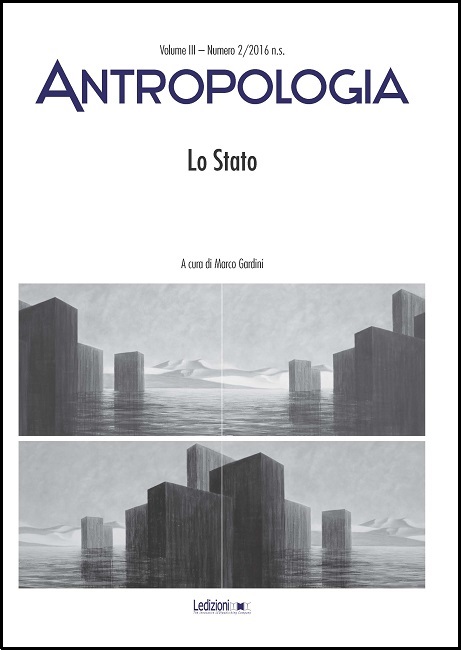The Limits of the Paddy: Political Centralization, Banditry, and Sovereignty in Madagascar
DOI:
https://doi.org/10.14672/ada2016752%25pKeywords:
Africa, Madagascar, Politics, CrimeAbstract
"The sea is the limit of my paddy"t. With this sentence, Andrianampoinimerina, a famous ruler of a
region on the highlands of Madagascar, expressed, at the turn of the XVIII and XIX century, the
desire to unify the island under his own political authority. The project was implemented only a
century later, with difficulty, by the French colonial conquest. Since then, the process of imposition
and extension of state sovereignty on the island has never stopped, emerging as a political field in
which different principles of legitimacy, old and new symbols of power and different forms of
political organization have been compared, overlapped and disputed. Even today the malagasy state
finds a number of difficulties in fully exercising its sovereignty on different areas of the country,
especially in some rural regions where armed groups of dahalo ( 'bandits' in Malagasy) have added
to their "classic" cattle raids attacks on homes, trucks, taxi brousse and, in some cases, the extortion
of tributes from entire villages. Given the slowness and inefficiency of the government to take
charge of the matter, many feel that these armed groups are operating with the connivance of the
authorities or sectors of the army; an idea reinforced by the fact that the military tend not to leave
alive any of those who have been accused of being dahalo, as if they were getting rid of
inconvenient witnesses. This "crisis of the dahalo", has driven the young people of some villages to
organize themselves, buy weapons and make their own justice at the risk of being confused with the
same bandits from whom they would like to defend themselves. Based on research conducted in
areas recently classified as "red zones" for the presence of dahalo, this article explores the
ambiguities and contradictions that emerge in the process of reconstitution of state sovereignty in
areas which have been economically and politically marginalized and it gives an account of how the
issue of security has entered on the political agenda and in the public debate of contemporary
Madagascar with increasing strength.
Downloads
Published
Issue
Section
License
Authors maintain the copyright of their original work and grant the Journal the right to first publication, licensed after 36 months under a Creative Commons Licence – Attribution, which allows others to share the work by indicating the authorship and first publication in this journal.
Authors may agree to other non-exclusive licence agreements for the distribution of versions of their published work (for example in institutional archives or monographs) under the condition that they indicate that their work was first published in this journal.



